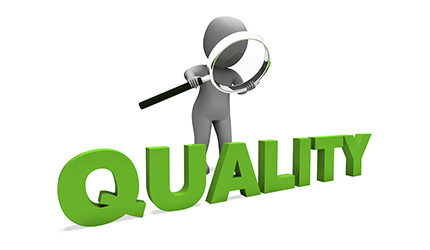
ICH Addresses API Makers’ Concerns With Q7 Q&A Guide
The International Conference on Harmonisation has released a Q&A guide aimed at clarifying requirements for quality management, documentation, equipment cleaning and more in its Q7 guideline on GMPs for active pharmaceutical ingredients.
ICH notes that while an API maker’s quality unit is responsible for releasing the API, including overseeing testing and results, it doesn’t have to perform the testing itself. Other departments may release raw materials and intermediates and conduct sampling, as long as oversight and responsibility for those tasks falls within the quality unit.
ICH also stresses that the quality unit responsible for final decisionmaking should not have responsibilities for producing APIs.
Product quality reviews should be conducted annually, even if no manufacturing has occurred during the review period, and should include trend analysis to verify the consistency of the process, the group adds.
ICH also expects API makers to define acceptance criteria for residues left in equipment and to establish strict timelines and acceptance criteria for equipment cleaning. This process should include a maximum “dirty hold time” between completion of processing and equipment cleaning, the organization says.
During cleaning validation, both visual examination and analytical testing should be used to verify that the cleaning is effective.
Records related to production, control and distribution should be retained for at least three years after the entire batch of the API is distributed in the supply chain. Batch numbers should be unique, but needn’t be sequential.
Materials suppliers should be evaluated using a risk-based approach, and all materials purchased should be approved by the API maker’s quality unit, ICH says. On-site audits of suppliers are not required, but are considered useful. According to ICH, API makers may reevaluate and use raw materials after their expiry date or retest date, so long as they can provide a scientific, risk-based justification.
The Q&A reiterates that contract manufacturers need to have an independent quality unit. If an API distributor contracts out steps in the production process, such as drying, milling or sieving APIs, then it is in essence a manufacturer subject to all Q7 requirements.
The guideline also touches on laboratory controls. Differing yield ranges should be described and justified in the production batch record. API makers may use retrospective validation for well-established products, but prospective validation is normally expected for processes introduced since the publication of ICH Q7.
The guide clarifies that Q7 doesn’t preclude the lifecycle approach to process validation. Investigations into process deviations may be used to support expanding the range of a process parameter, but the company should be able to demonstrate that this won’t affect the quality or consistency of its APIs.
ICH says it released the Q&A because of continuing uncertainties in the 2000 Q7 guideline. It is based on questions that arose during industry training sessions hosted by the Pharmaceutical Inspection Convention and Pharmaceutical Inspection Co-operation Scheme, or PIC/S, as well as an ICH survey.
To access the Q&A, go to www.fdanews.com/06-23-15-QA.pdf. The ICH Q7 guideline is at www.fdanews.com/06-23-15-Q7.pdf. — Kellen Owings
